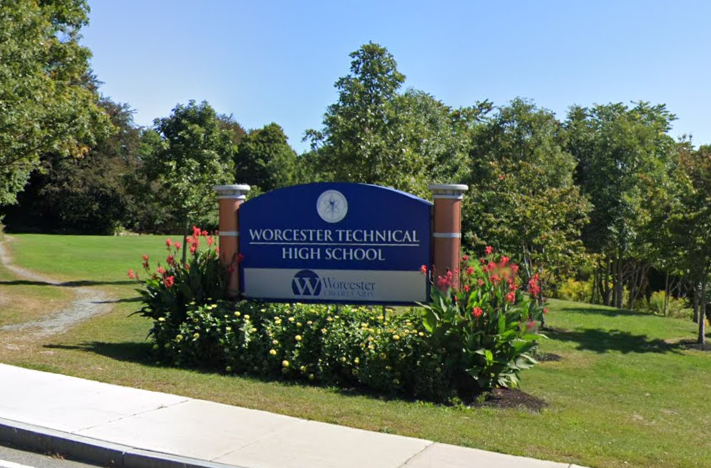The Healey administration moved to overhaul the way vocational and technical schools admit students after years of criticism that the system excludes applicants from certain backgrounds, but some advocates who sought the changes are concerned the proposal will lead to “the same discriminatory selection pattern.”
Department of Education officials plan next week to present new regulations requiring career technical schools with waitlists to use lotteries when selecting students, a shift from the status quo in which schools can select students based on grades, attendance and discipline records.
Demand for slots in the programs, which train students in many high-demand trades, continues to outpace supply. Reform supporters have argued for years that the existing admissions process disproportionately leaves the limited slots out of reach for students of color, English language learners, students with disabilities or those from low-income families.
“The Department of Elementary and Secondary Education is committed to all students having equitable access to career technical education, and these proposed regulatory changes are designed to advance that goal,” Acting Elementary and Secondary Education Commissioner Russell Johnston said.
The draft regulations newly call on programs to admit students by a lottery when there are more applicants than available slots. If local districts have agreements about seat allocation in place with a career technical program, the program can run a lottery for each district that sends students.
Under the proposal, middle schools in districts that send students to career technical high schools would also need to have a districtwide policy to make students aware of the vocational options.
Johnston on Tuesday will present the draft regulations to the Board of Elementary and Secondary Education, whose members will vote to solicit public comment.
Some of the same advocates who have long pushed for changes are already vocal about their concerns with the proposal, arguing that it would fall short of fulfilling Gov. Maura Healey’s “promise of fairer admissions.”
While the regulations would decouple admissions from attendance and discipline records, those criteria could still limit which students enter the lottery pool. Schools could exclude from the lottery students with 10 or more unexcused absences per school year as well as students who were suspended or expelled for more than 10 days.
The Vocational Education Justice Coalition cited attendance data from several districts and said the share of students with at least 10 unexcused absences is significantly higher in districts with large populations of students of color, warning that they would therefore be disqualified from the admissions lottery “in disproportionate percentages.”
“The insertion of 10 or more unexcused absences as a gateway for entry into the lottery negates any progress in eliminating grades, recommendations, and interviews,” VEJC, whose members include groups such as the Massachusetts Teachers Association and La Colaborativa, wrote. “It is the coalition’s belief that the proposed revised regulations will result in the same discriminatory selection pattern we have seen ever since DESE began publishing admissions data.”
Healey administration officials said they crafted the regulations based on months of work and study, including several board meetings that focused on the career technical admissions process.
In 2021, the board removed statewide requirements for programs to use grades, attendance, discipline records and counselor recommendations as admissions criteria, but it did not ban their use. Twenty-five of the 29 career technical districts kept some selective criteria in place.
Lawyers for Civil Rights and the Center for Law and Education filed a civil rights complaint in February 2023 arguing that the process remains unfair and prioritizes white, higher-income students who speak English as a native language.
“Over the past few months, our educators have engaged with the Board and Department to highlight essential work our schools and programs do to provide students with the necessary education and skills to help the Commonwealth meet its 21st Century workforce needs,” Steven Sharek, executive director of the Mass. Association of Vocational Administrators group, said Thursday. “Above all, we want to ensure that more students across the state are able to access these high-demand programs. We are currently reviewing the draft regulations and will reserve any specific observations for the public comment process.”
Healey has been pushing to place more emphasis and resources on vocational and technical education, part of what her team calls a “Reimagine High School” campaign.
Her supplemental budget bill to spend surplus surtax revenue would direct $75 million toward career technical education, which officials say would add 3,000 seats in programs over three years. Another Healey bill funding public higher education capital improvements includes $100 million for grant programs that support high schools, colleges and other institutions with career programs and workforce training.
“Massachusetts’s career technical education programs play an important role in our state’s education system and economy. They provide students with the skills they need to succeed in today’s job market and help us meet the workforce needs of our employers,” Healey said in a statement Thursday. “Our administration has been engaging with families, educators, CTE schools, local officials and the business community to determine how we can increase access to these programs and set all of our students up for success.”
Healey in January launched the Massachusetts K-12 Statewide Graduation Council and charged the group with “studying and making recommendations on a new statewide graduation requirement.” Voters in November eliminated the requirement that high school students pass the MCAS exams as a prerequisite to graduation.

